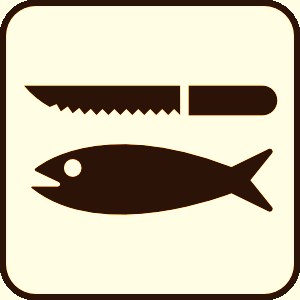Fish Waste Management

Description
Sport fishing is one of the most popular uses of boats. However, fish cleaning waste produced by recreational fishermen can become a major nuisance if not properly handled. If recreational fishermen are regularly cleaning their fish at your marina, review the following BMPs to see if any new practices can help improve the situation.
Best Management Practices
If fish waste disposal is a potential problem at your facility, the following tips may help you.
- Fish Cleaning Area and Rules: The best way to prevent a problem is by developing and clearly marking a fish cleaning area and posting rules for disposal of fish waste on the marina property. This will prevent fishermen from cleaning and disposing of fish at improper locations.
- Fish Cleaning Staff: Provide a staff person who can clean fish for fishermen for a per pound service charge.
- Covered Containers: Treat fish waste like any other solid waste that requires covered containers.
- Fish Cleaning Provisions in Customer Contracts: Include requirements for cleaning fish in the customer’s environmental contract.
- Fish Composting: Compost fish waste where appropriate by mixing it with peat moss or wood chips to make garden mulch. This quickly produces excellent compost for use in the marina gardens without any odor problem. For more ideas about composting fish waste, refer to The Leaf and Yard Waste Composting Guide found on the Massachusetts Department of Environmental Protection’s website at www.state.ma.us/dep/recycle/files/leafguid.doc.
- Fish Cleaning Stations: Towns should also consider installing fish cleaning stations at public boat launch ramps and fishing piers.
Useful Contacts
Call Massachusetts Division of Marine Fisheries (DMF) at (617) 626-1520 to locate your nearest DMF regional office for assistance.